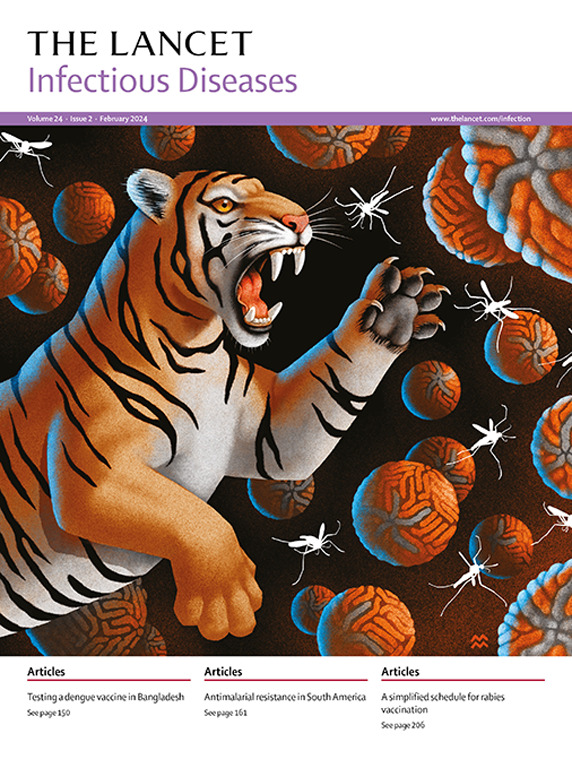Embedding treatment in stronger care systems
IF 36.4
1区 医学
Q1 INFECTIOUS DISEASES
引用次数: 0
Abstract
A key lesson from the west Africa (2014–16) Ebola disease epidemic was that outbreak responses fail when they respond to patients through a narrow clinical lens without considering the broader community and social context of care. Here, in the second of two Series papers on the modern landscape of Ebola disease, we review progress made in the last decade to improve patient-centred care. Although the biosafety imperatives of treating Ebola disease remain, recent advances show how to mitigate these so that patients are cared for in a safe and dignified manner that encourages early treatment-seeking behaviour and provides support after the return of patients to their communities. We review advances in diagnostics, including faster Ebola disease detection via real-time RT-PCR, and consider design improvements in Ebola disease treatment units that enhance patient safety and dignity. We also review advances in care provision, such as the integration of palliative care and mobile communication into routine care, and address how greater access to research is possible through harmonised clinical trials. Finally, we discuss how strengthened community engagement and psychosocial programmes are addressing stigma and providing holistic support for survivors.西非(2014-16 年)埃博拉疫情的一个重要教训是,如果疫情应对措施只从狭隘的临床角度应对患者,而不考虑更广泛的社区和社会护理背景,那么疫情应对措施就会失败。本文是关于埃博拉疾病现代状况的两篇系列论文中的第二篇,我们将回顾过去十年在改善以患者为中心的护理方面所取得的进展。尽管治疗埃博拉疾病的生物安全要求依然存在,但最近的进展显示了如何减轻这些要求,从而以安全、有尊严的方式护理病人,鼓励病人尽早寻求治疗,并在病人返回社区后提供支持。我们回顾了诊断方面的进展,包括通过实时 RT-PCR 技术更快地检测埃博拉疾病,并考虑改进埃博拉疾病治疗单位的设计,以提高患者的安全和尊严。我们还回顾了在提供护理方面取得的进展,如将姑息治疗和移动通信纳入常规护理,并探讨了如何通过统一的临床试验使更多人有机会参与研究。最后,我们讨论了如何通过加强社区参与和心理社会计划来解决污名化问题并为幸存者提供全面支持。
本文章由计算机程序翻译,如有差异,请以英文原文为准。
求助全文
约1分钟内获得全文
求助全文
来源期刊

Lancet Infectious Diseases
医学-传染病学
CiteScore
60.90
自引率
0.70%
发文量
1064
审稿时长
6-12 weeks
期刊介绍:
The Lancet Infectious Diseases was launched in August, 2001, and is a lively monthly journal of original research, review, opinion, and news covering international issues relevant to clinical infectious diseases specialists worldwide.The infectious diseases journal aims to be a world-leading publication, featuring original research that advocates change or sheds light on clinical practices related to infectious diseases. The journal prioritizes articles with the potential to impact clinical practice or influence perspectives. Content covers a wide range of topics, including anti-infective therapy and immunization, bacterial, viral, fungal, and parasitic infections, emerging infectious diseases, HIV/AIDS, malaria, tuberculosis, mycobacterial infections, infection control, infectious diseases epidemiology, neglected tropical diseases, and travel medicine. Informative reviews on any subject linked to infectious diseases and human health are also welcomed.
 求助内容:
求助内容: 应助结果提醒方式:
应助结果提醒方式:


